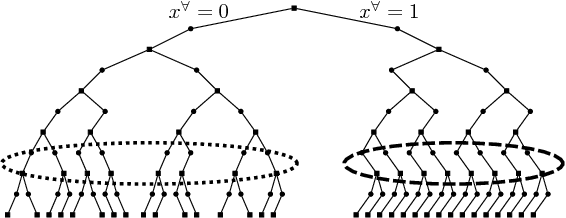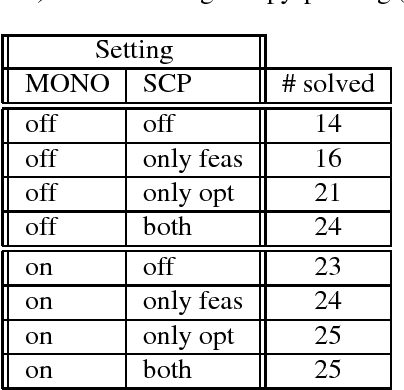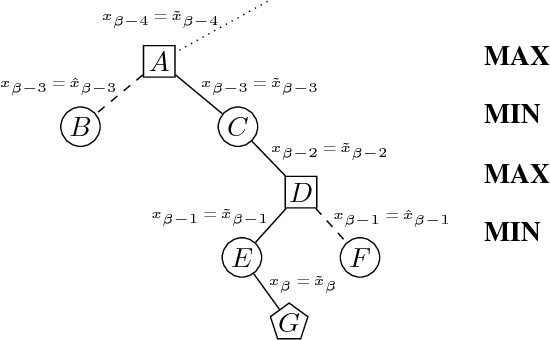Ulf Lorenz
Game Tree Search in a Robust Multistage Optimization Framework: Exploiting Pruning Mechanisms
Nov 29, 2018



Abstract:We investigate pruning in search trees of so-called quantified integer linear programs (QIPs). QIPs consist of a set of linear inequalities and a minimax objective function, where some variables are existentially and others are universally quantified. They can be interpreted as two-person zero-sum games between an existential and a universal player on the one hand, or multistage optimization problems under uncertainty on the other hand. Solutions are so-called winning strategies for the existential player that specify how to react on moves of the universal player - i.e. certain assignments of universally quantified variables - to certainly win the game. QIPs can be solved with the help of game tree search that is enhanced with non-chronological back-jumping. We develop and theoretically substantiate pruning techniques based upon (algebraic) properties similar to pruning mechanisms known from linear programming and quantified boolean formulas. The presented Strategic Copy-Pruning mechanism allows to \textit{implicitly} deduce the existence of a strategy in linear time (by static examination of the QIP-matrix) without explicitly traversing the strategy itself. We show that the implementation of our findings can massively speed up the search process.
 Add to Chrome
Add to Chrome Add to Firefox
Add to Firefox Add to Edge
Add to Edge